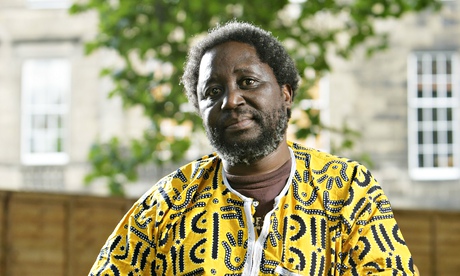
He promised his mother he would not die in foreign lands. Yet he slipped from our grasp, so far away.
Storyteller, novelist, poet, playwright, human rights and cultural activist, and highly respected political and social commentator, Chenjerai Hove’s figure looms large in Zimbabwe’s literary pantheon. News of his death in Stavanger, Norway, has sent shock waves through Zimbabwe’s literary establishment.
Born near the Zimbabwean mining town of Zvishavane in 1956, Chenjerai Hove taught for many years in secondary schools in Zimbabwe while furthering his studies in literature and education before going on to work as an editor in several Zimbabwean publishing houses.
When I first met him at the Zimbabwe Book Fair many years ago, I felt that I had always known him. I knew some members of his large extended family and we had many mutual friends but most of all I had followed him through his writing. I told him how, reading his work, I often felt that he articulated my thoughts before I thought them and described my feelings before I felt them.
I reminded him of his article The Earth Turns on a Foreign Axis, in which he argued that education in Africa has been an alienating experience because from the time an African child enters the classroom, he finds that his world is not worth learning about:
“Nothing about my own parents’ farming routines, the birds of my own sky, the smell of my own land, the cries of the children as mothers sang African lullabies to them, and the folk tales which sent ghosts reeling in our imagination. Nothing about the stories of witches and medicine men and women as they fought to control both the gods and the human beings. All became ‘superstition’ as we succumbed to the new religion, never to return again or maybe to remain in some grey area of confusion.”
That article helped me sort out my “grey area of confusion”, caused by the colonial racist education of Rhodesia. Since then, his writing has always been a beacon for me, speaking directly to my own experience on issues close to my heart.
Chenjerai was a prolific writer, both in his mother tongue, Shona, and in English. He published numerous stories and a novel, Masimba Avanhu in 1986. His four volumes of poetry include Up in Arms (1982) and Red Hills of Home (1985). He shot to international prominence with his first novel in English, Bones (1988), which won him the Noma award and was translated into 10 languages.
He was deeply invested in promoting a more inclusive literary culture. He was a founder member of the Zimbabwe Writers’ Union, serving as its chairperson from 1984 to 1992. During his tenure as president of PEN Zimbabwe, he incurred the wrath of the Mugabe government. His outspokenness resulted in intense harassment and death threats that forced him to leave the country in 2002. He travelled extensively and acted as writer-in-residence at universities in the US, France, Holland and finally Stavanger, where he died on 12 July 2015.
I feel this loss deeply because as a human rights activist, I always felt affirmed and encouraged by Chenjerai and I appreciated his generosity in giving of his talent to support our work. I remember affectionately how in May 2006, one year after Operation Murambatsvina in which the Zimbabwean regime razed the homes of thousands of the poorest and most vulnerable of its citizens, the Crisis in Zimbabwe office in Johannesburg organised a commemorative meeting. I asked Chenjerai if he could write a poem as part of the protest. He responded immediately with Nights With Ghosts: A Child’s Letter from the Rubble. Space allows me to quote just the first stanza:
dear samueri, my friend/
i will never see you again;
maybe i will.
but i shall not know
until father finds us a new address.
addresses!
we have none anymore.
we are of no address
In an article published in South Africa’s Mail & Guardian newspaper in April 2013, Chenjerai described the pain of saying goodbye to his mother who warned him that he should not come back soon because “they want to decapitate you”: “The last pain was the sharpest. It made me view my country through unnameable wounds, endless, invisible, innumerable; and sad farewells of those who left before me and died in foreign lands without anybody to comfort their last breaths.”
One can only feel rage that instead of being feted as the national treasure that he was, Chenjerai Hove had to die with no address, far from home.
It is immensely comforting to know that his wife and his sister were able to spend the end days with him so he did not draw his last breath alone.
Elinor Sisulu is a Zimbabwean-born South African writer, children’s literature specialist and human rights activist
- This article was amended on 27 July 2015 as it had stated that
Chenjerai Hove was president of PEN South Africa. In fact he was president of PEN Zimbabwe

